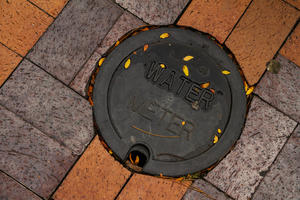In these challenging economic times, finding ways to save money is at the forefront of many business owners’ minds. But what if you could make money from something you’d usually dispose of? Water retailer, Wave, speaks to Ben Hatfield-Wright, the FOG Programme Manager for Anglian Water, to find out how restaurants, cafes, and food manufacturers, may be able to make money from their fats, oils and greases.
Q. The industry talks a lot about FOG and the impact it has, but what exactly is FOG and why is it such a problem?
A. FOG stands for fats, oils and grease and it’s a problem because of the effect it has on the sewer network, communities, and the environment. If it escapes from kitchens and enters the sewer system, it cools down and hardens in the pipes causing blockages. When it combines with other things that shouldn’t be in the sewers, like wet wipes and sanitary items, the dreaded fatberg begins to grow. You’ve probably read about these in the press as they can reach the size of a double decker bus!
To give some context, every 90 seconds in the UK there’s a blockage and every time there's a blockage on the network, we're playing Russian roulette as there are a number of things that can happen on the back of it.
Every single day there's:
- Over 800 incidents or blockages that occur across all water companies.
- 147 of those are going to cause external flooding.
- 82 of those are going to cause internal flooding.
- At least two of those are going to cause a pollution.
FOG is a massive contributor to this and when we look at our numbers, 80 percent of our blockages are caused by or have an effect from FOG.
Q. Where does FOG come from?
A. It can come from many different sources. You’ve got domestic properties, commercial sources like food serving establishments which can range from a cake shop all the way up to a large stadium serving thousands of people. And then there’s industrial sources, such as food manufacturers and production facilities.
FOG can escape from kitchens through sinks and drains. For example, if you wash dirty pots and pans under running water, all that grease and food debris makes its way into the pipes.
Q. Is there any value to FOG?
A. Yes! FOG can have a new life after it's been through the food industry – there's probably about 30 different applications it can be used for. These include the production of energy and biodiesel as well as for animal feedstocks and for enhancing soil condition.
In the current market, FOG is sitting at £1.03 per litre. A lot of collectors will focus on cooking oil because it's quite easy to process. We haven't got a price for brown grease yet, but it's something we're working on.
Q. What is Anglian Water doing specifically to combat FOG in the network?
A. FOG is a valuable resource, but it’s also a hazard so we designed a tool which highlights where our risk is in the network. It means we know which of our areas are seeing negative effects from FOG and we can target food serving establishments in those areas with an outreach and education programme.
The programme involves an environmental inspector, from our contract partners, ECAS, going out to sites and raising awareness. They’ll educate kitchen staff on the damage FOG can do to their business, the local community and the environment. They’ll also remind them of their obligation to keep the sewers free flowing and help them adapt their business processes, which could include:
- Fitting fat traps;
- Making sure they know how to dispose of their FOG correctly;
- Making sure they've got a secure bunded area for the waste oil;
- Making sure they're using a licensed waste transfer company to take their waste away.
Our aim is to avoid FOG entering the sewer system by enabling a secure supply chain. We’re working to connect food serving establishments to the huge demand for a regular supply of used FOG which can then be transported into the feedstocks and converted into energy or biodiesel.
Q. Businesses are in for a tough winter and an uncertain future. If you could give one message or piece of advice to companies that are discharging FOG to the sewer, what would it be?
A. My first message would be, stop FOG getting into the sewer. And my second message would be to join this circular economy as quickly as you can. Your business could benefit from capturing your fats, oils and grease. Not only is it a potential new revenue stream but you’ll be doing the right thing both for your business and to support your sustainability message. You’ll also be helping to protect your local community and environment.
To take your first step, contact your water retailer or wholesaler and we can help direct you to a list of reputable suppliers. Based on the needs of your business, they can come and carry out an assessment of your business and help you understand the packages available.
This is a copy of our article in the Major Energy Users Council's BUU magazine, which was written in November 2022. You can find the original article here.


